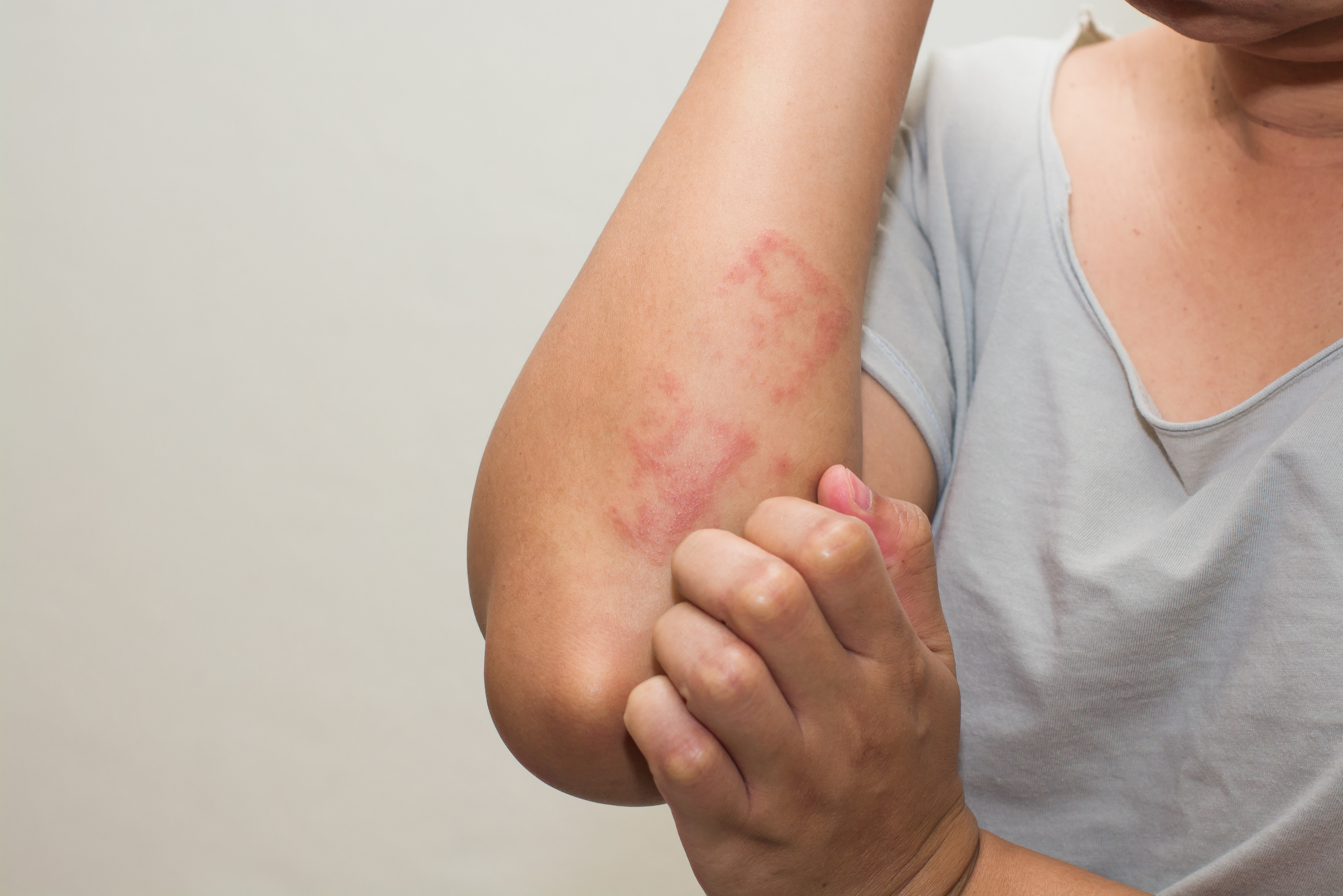Eczema is manageable, and with knowledge of the condition, it can be treated and flare-ups can be soothed. Whether you’re living with eczema or want to know more about diagnosing, treating, and managing this condition, start a search today.
Eczema is a common skin condition that can cause inflammation, redness, and other painful symptoms. But eczema isn’t a single condition – it’s actually a group of skin conditions that share symptoms.
Types of Eczema
There are a few different types of eczema, including:
- Atopic dermatitis
- Contact dermatitis
- Dyshidrotic eczema
- Nummular eczema
- Seborrheic dermatitis
- Stasis dermatitis
Eczema is actually a very common condition. More than 30 million people in the U.S. are living with some type of eczema. You can learn more about the different types with some additional online researching.
What Causes Eczema?
The cause of eczema is unknown, though it’s believed that eczema occurs as the result of both genetic and environmental factors. However, most importantly, eczema isn’t contagious. You can’t “catch” this condition from others.
Eczema becomes obvious or present on the skin when an irritant or allergen of some kind “switches on” the body’s immune system. Skin cells start behaving abnormally, and this triggers symptoms to appear.
Because eczema can come and go, bouts of symptoms are called flare-ups. The condition is always present, but it can disappear and reappear as triggers or allergens change.
Common Eczema Symptoms
Eczema symptoms typically appear during flare-ups. Those who live with eczema may experience some or all of these common symptoms:
- Dry skin
- Sensitive skin
- Red or inflamed skin
- Itching (mild, moderate, or severe)
- Dark-colored patches on the skin
- Rough, leathery, or scaly patches on the skin
- Oozing or crusting of inflamed skin
- Swelling
These symptoms can appear differently in different people. Eczema doesn’t affect everyone in the same ways – so if you’re experiencing other symptoms, do some research before talking with your doctor or dermatologist.
Treating Eczema
There is currently no cure for eczema. However, the condition can be managed with different treatment options. Most of these treatments work to heal the skin and prevent flare-ups from happening, which can reduce your skin woes.
To start treating eczema, it’s important to first see a doctor and get a diagnosis. If what you’re dealing with is truly eczema, your doctor will suggest a treatment plan that can help target your specific symptoms, triggers, and other concerns.
Medical Treatment Options
Medications and medicated products are available to help soothe the symptoms of eczema. There are medications that can target inflammation, the body’s immune system, or even the discomfort of changes happening to your skin.
Medical treatments typically prescribed by doctors include:
- Topical corticosteroid creams and ointments, which are anti-inflammatory
- Systemic corticosteroids, which are either injected or taken by mouth to reduce inflammation
- Antihistamines, which can reduce itching and the risk of scratching (especially at night)
- Topical calcineurin inhibitors, which are medications that suppress the immune system to soothe inflammation and prevent flare-ups
- Phototherapy, which exposes skin to UVA or UVB light
- Dupixent, a biologic that is injected subcutaneously, blocks the inflammatory marker that leads to eczema
What works for one person’s case may not work for another, and in many cases, a multi-pronged treatment plan is required. You can learn more about specific medications with some online research,
Alternative Treatment Options
Alternative treatment options, which are also called home care treatments, can help you soothe your eczema symptoms and flare ups without, or in combination with medication. Some of these treatment options include:
- Take a lukewarm, or oatmeal, bath
- Apply moisturizer multiple times throughout the day, especially after a bath
- Wear cotton or other soft fabrics to avoid rough, scratching materials
- Use mild soaps without fragrance when washing skin
- Air-dry or gently pat dry skin
- Use a humidifier
- Avoid known eczema triggers
You can learn more about these and other at-home treatments that can help provide relief with an online search.
Start a Search For Relief
Although eczema can be a lifelong condition to deal with, there are ways to manage symptoms. With the right knowledge, you can better help your skin and your overall wellness, so take the time to research what treatment options may work for you.
Make sure to talk with your doctor if you think you might be experiencing the symptoms of eczema. Getting a diagnosis is the first step in treating the condition and its symptoms. Relief is possible!
